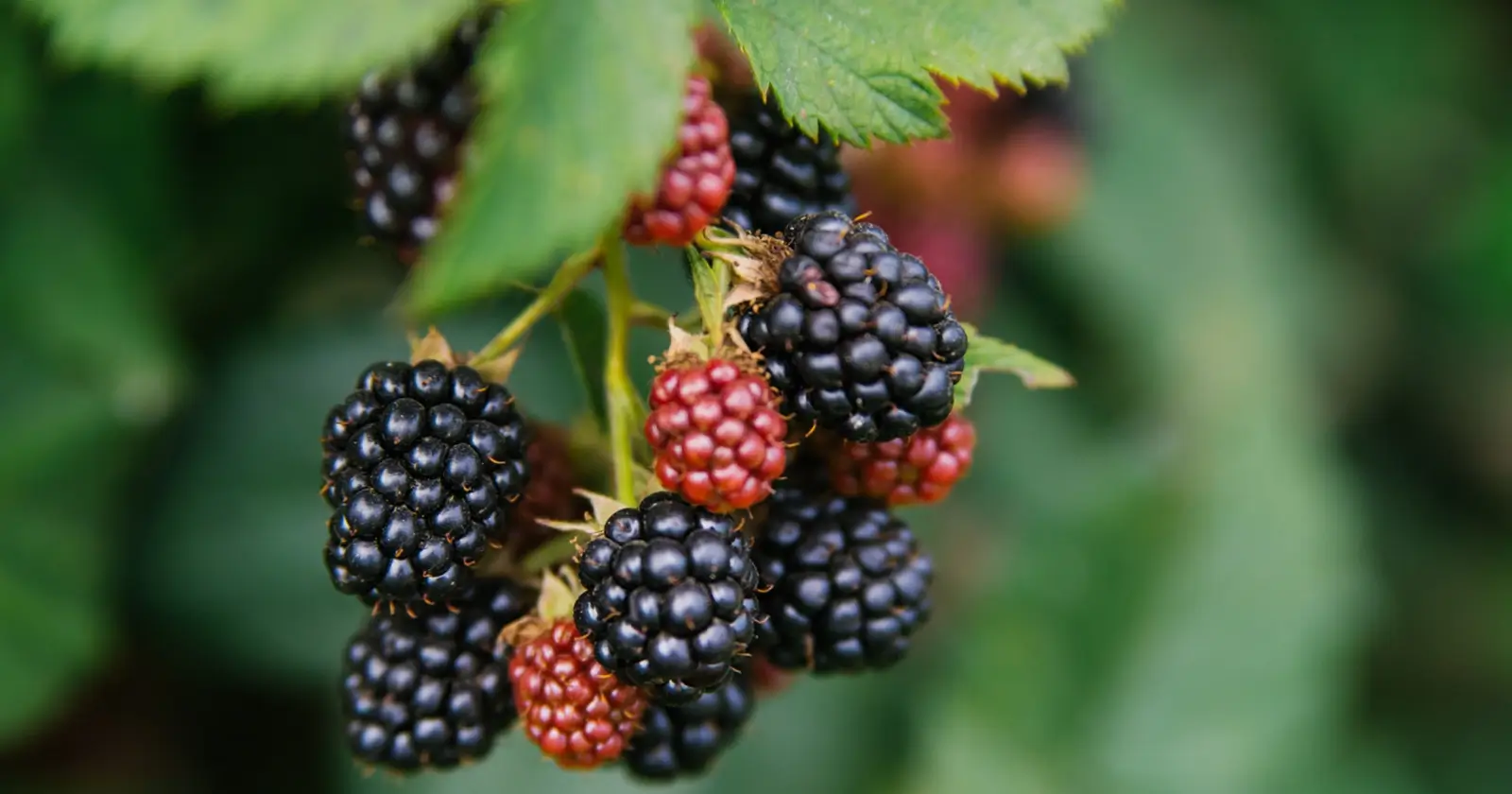Blackberries are part of the Rosaceae family and rank among the most popular berries in the U.S., generating over $650 million in sales in 2019, according to a 2020 study published in the Genetics Society of America journal. Their popularity is well-deserved, not only for their delightful taste but also for their health benefits. As noted by Healthline, a cup of blackberries provides 30.2 milligrams of vitamin C, which is beneficial for wound healing and skin regeneration. Blackberries are also high in fiber, aiding in cholesterol reduction and promoting regular bowel movements.
Medical News Today highlights that blackberries are rich in antioxidants, which may help protect cells from free radical damage and reduce the risk of heart issues and other health conditions. Additionally, the presence of anthocyanins in blackberries may enhance blood flow to the brain, potentially improving memory, particularly in individuals with mild to moderate dementia, according to the Cleveland Clinic.
Despite the numerous nutritional advantages, blackberries can also cause unexpected side effects like diarrhea and stomach discomfort. Here are a few reasons why.
Salicylate allergy or sensitivity from blackberries
Salicylate sensitivity or intolerance, although less known than gluten or lactose intolerance, affects many individuals. Salicylates are salts or esters of salicylic acid found in certain plants, serving as protection against insects and diseases (via Drugs.com). These compounds have bacteriostatic, fungicidal, and keratolytic properties, making them effective for relieving pain, fever, or inflammation. Many over-the-counter medications, like aspirin, contain salicylates (via Medline Plus).
Foods with salicylates can trigger allergic reactions and organ swelling, according to WebMD. As per Healthline, many vegetables, spices, and fruits, including blackberries, are high in salicylates, especially when dried. The salicylate content in these foods can vary based on growing conditions, preparation, and ripeness, says Healthline.
Contaminated blackberries can cause food poisoning
The World Health Organization (WHO) reports that globally, about 600 million people fall ill annually from contaminated foods. In the U.S., food poisoning affects 48 million people and results in 3,000 deaths each year, as per the Centers for Disease Control and Prevention (CDC). Food poisoning is any illness caused by consuming contaminated foods (via Cleveland Clinic). Bacteria like E. coli are common culprits, but parasites, viruses, fungi, and chemicals can also cause it.
If unwashed or contaminated blackberries lead to food poisoning, symptoms like stomach pain, diarrhea, nausea, and vomiting may occur. Typically, diarrhea and related symptoms like vomiting and fever are the body’s way of expelling toxins from contaminated food, according to the Cleveland Clinic.
Moldy blackberries contain toxins
Mold, a type of fungus, can cause food poisoning. It forms visible, thread-like structures and can alter the shape and texture of food, according to Healthline. Mold can attract invisible bacteria and produce mycotoxins, especially in nuts and dried fruits, as noted by WebMD. Mycotoxins are harmful substances that can damage the immune system, lungs, and cause digestive issues.
While mold can grow on all foods, fresh foods with high water content, like berries, are particularly susceptible, according to Healthline. Cutting away moldy portions might not eliminate all contamination, especially if harmful bacteria are present (via the Cleveland Clinic). Even if only a few pieces of a carton of blackberries show mold, the entire package may be contaminated, says the clinic.
Blackberry is a FODMAP food
FODMAP is a scientific term for certain carbohydrates, referring to fermentable oligosaccharides, disaccharides, monosaccharides, and polyols (via Johns Hopkins Medicine). These short-chain carbohydrates are difficult for the small intestine to absorb, potentially causing diarrhea, cramping, and constipation when consuming high-FODMAP foods. According to Healthline, foods like blackberries, apricots, grapes, and mangoes can increase gas and water levels in the small intestine. A 2020 review in the Nutrients journal states these changes can lead to bloating, abdominal pain, flatulence, and altered bowel movements for those with irritable bowel syndrome (IBS), per Healthline.
While high-FODMAP foods may cause symptoms in some individuals, it’s essential to consult with a doctor or nutritionist to determine if restricting these carbohydrates is necessary. While FODMAPs can cause digestive issues for some people, most can tolerate and benefit from them, according to Healthline.
Unripe wild berries are toxic
Some wild berries are often mistaken for blackberries and can be harmful if unripe, containing solanine. According to Healthline, unripe fruits with solanine are toxic due to poisonous alkaloids. High concentrations are found in sprouts and green parts of tubers, such as potatoes. Symptoms may include diarrhea, fever, and abdominal pain, as discussed by Michigan State University. Whether potatoes develop solanine poisoning depends on storage conditions, says the university.
The same applies to plants like the wild Blackberry nightshade, which is toxic, according to the University of New England. The fruits of Blackberry nightshade start as dark green and turn purple-black when ripe. The green fruits contain high levels of solanine, making them the most toxic, according to WebMD.




